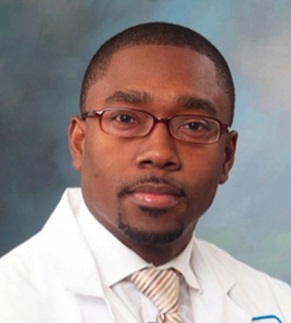Trusted Resources: People & Places
Healthcare providers, researchers, and advocates
Patrick C. Hines, MD, PhD
Researcher Assistant Professor in the Department of Physiology
Wayne State University School of Medicine
3901 Beaubien Street
Pediatrics Critical Care, Medicine
Detroit, Michigan, United States
Patrick C. Hines, MD, PhD is an experienced pediatric critical care physician (general and cardiac) and a vascular biology research scientist. He is also the Founder and CEO of Functional Fluidics, a startup company developing clinical bioassays to measure blood function during simulated flow with microliters of whole blood. This technology is being adopted by pharmaceutical companies, clinicians, and research scientists to evaluate new therapies for red blood cell disorders such as sickle cell disease, coagulation disorders, and cancer. Dr. Hines was selected to the inaugural class of the Aspen Global Leadership Network’s Health Innovators Fellowship. He was the Chairman of the board of directors for the SNMA in the past. Areas of Interest: Role of beta-adrenergic stimulation in erythrocyte adhesion to the pulmonary vasculature; mechanisms of sickle erythrocyte adhesion
Representative Publications:
Central nervous system events in children with sickle cell disease presenting acutely with headache
Novel epinephrine and cyclic AMP-mediated activation of BCAM/Lu-dependent sickle (SS) RBC adhesion
Related Content
-
Bosede Afolabi, MBChB(Ife), DM(Notts), FRCOG, FWACS, FMCOGDr. Afolabi is a gynaecologist with inte...
-
Sickle cell patients suffer as disparities in care and research persistWhen 9-year-old Jeremy Brown is in pai...
-
Jennifer A. Rothman, M.D.Dr. Rothman treats children with cancer ...
-
Acute Care Utilization Is More Common in Patients with Sickle Cell Disease Who Have Chronic Complications and Chroni...Background: We undertook a large multisi...
-
Provider Perspectives of Necessary Factors in Sickle Cell Disease Health Care Transition: Results from an Online Sur...Introduction: Survivorship of children w...
-
Toronto Neuroscientist Getting Closer to Tailored Treatments for Chronic PainDaily tasks most people don't think too ...
-
Finding the right sickle cell disease care teamChandra Wallace does not remember a time...





 +myBinder
+myBinder
